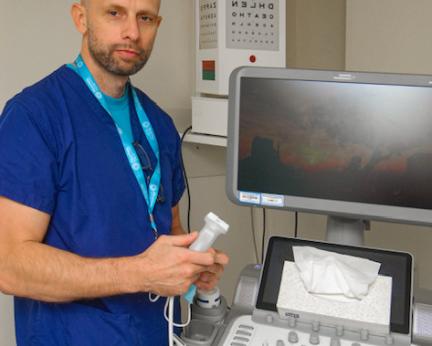Currently, I am nearing the end of my apprenticeship diploma course which is run by Dynamic training. When I finish, I’ll register with the Academy for HCS’s (AHCS) accredited associate register at Level 4.
I am very proud of the knowledge I've gained through the course, as it helped me articulate myself better as a healthcare professional. And I get to put this knowledge into practice in my role.
If you’re interested in doing a job like mine, my advice is to start by applying for jobs on the NHS Jobs website as a band three ophthalmic technician or healthcare assistant. Once you’re in a role, it’s good to take a keen interest in the high-level imaging conducted by the practitioners.
There are also opportunities through the associate programme at band four; this gives you the time on the job to receive high level training with specific in-house training and in-house accreditation.
Three words I would use to describe the qualities required for this role are perseverance, patience and perfection.





